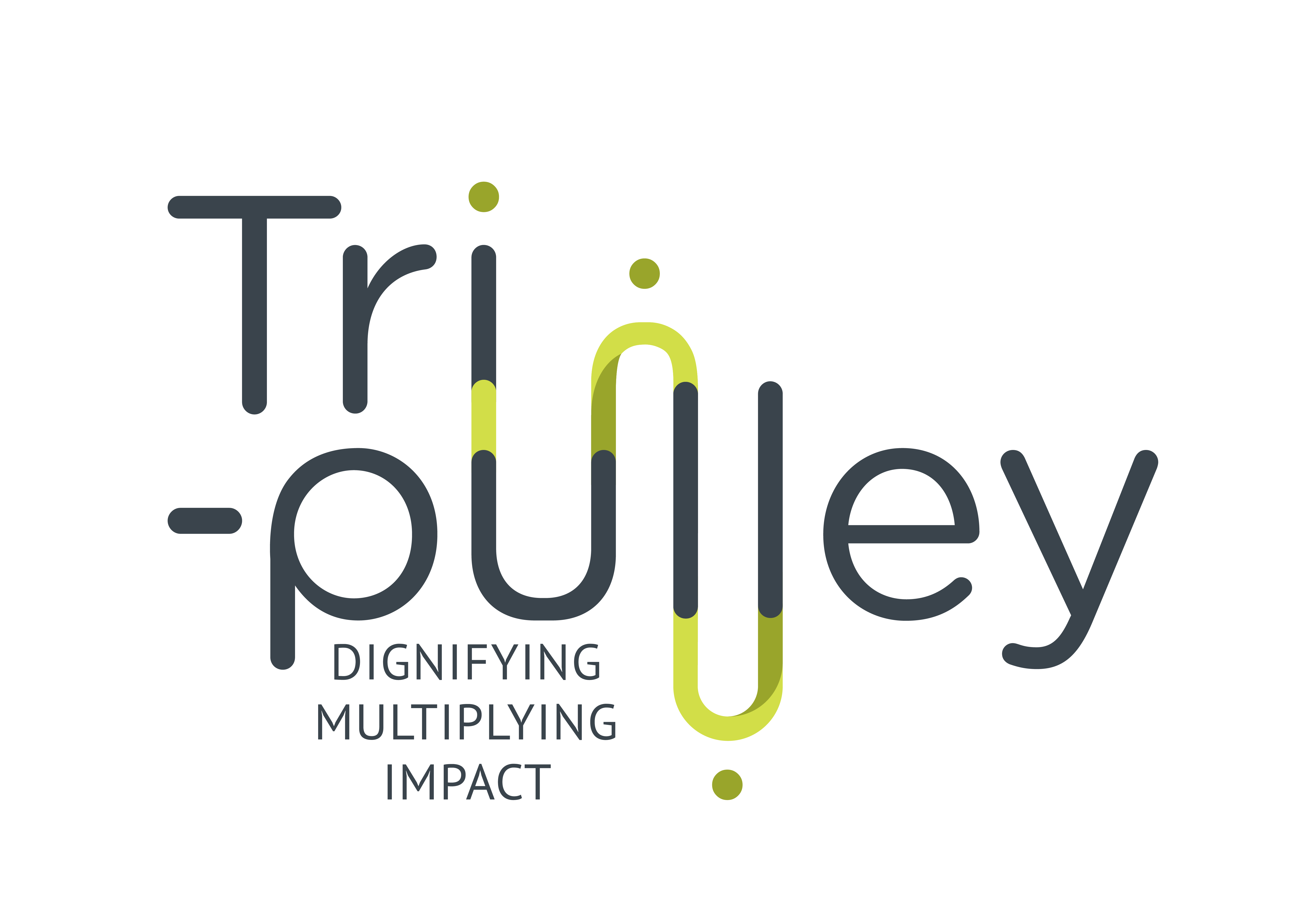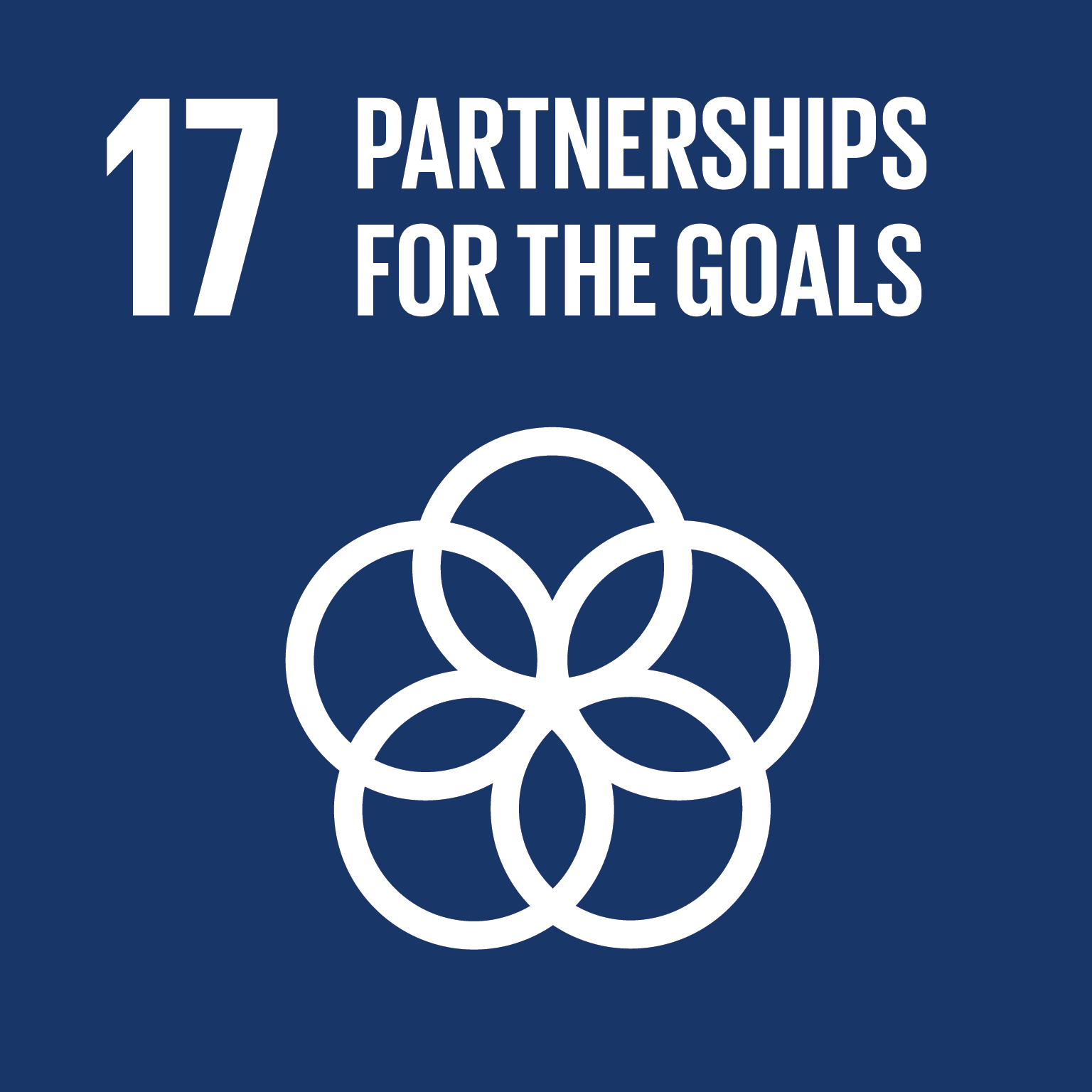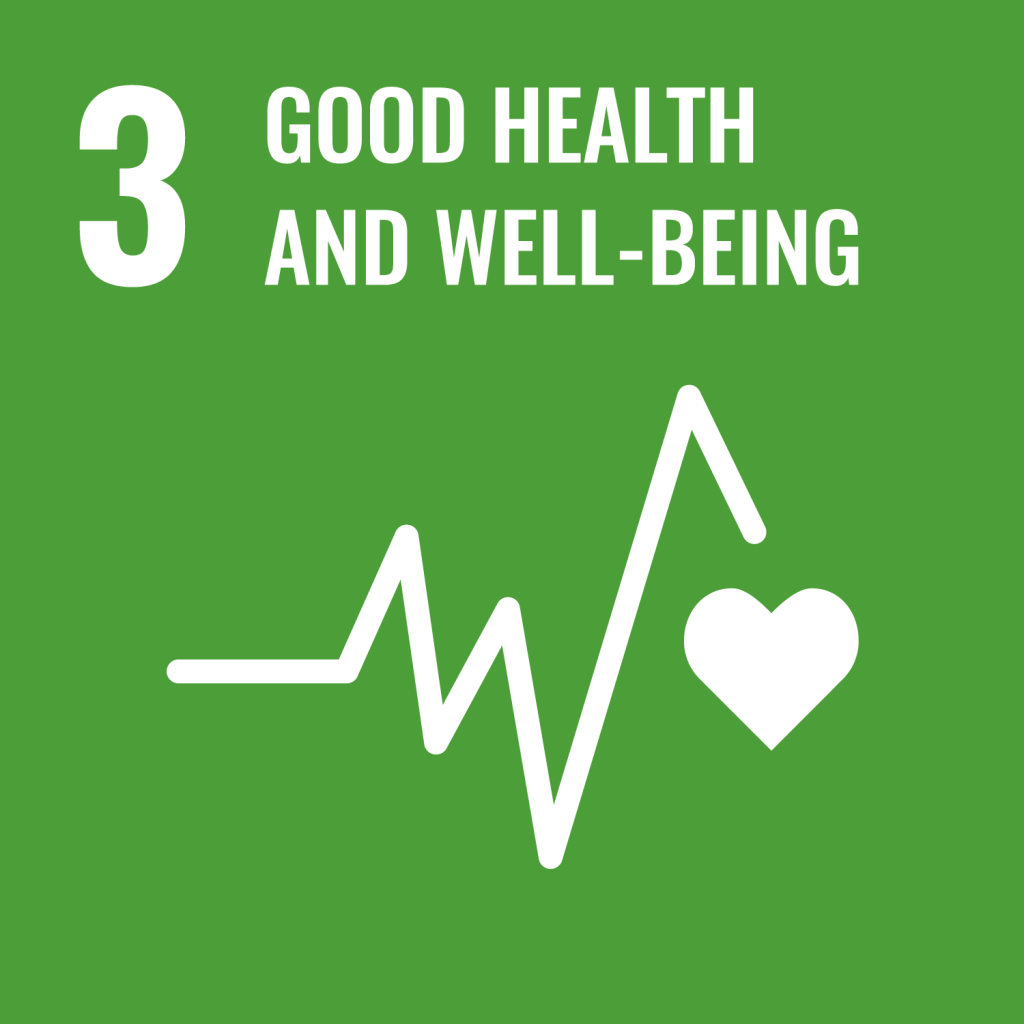Relevance of Tri-pulley to the United Nations Sustainable Development Goals
SDG8: Decent work & economic growth
SDG8 is at the core of Tri-pulley’s model: Creating job opportunities for a social cause, following decent work practices, allowing people to gain their lives with dignity by being productive, supporting social and environmental enterprises, and promoting the circular economy. Within this umbrella, Tri-pulley’s matches and work tackles many of the other SDGs.
SDG17: Partnerships for the goals
The work of Tri-pulley cannot be conducted without networking, partnerships and collaborations. We believe that each one of us has its own expertise and mandate and that we can complement each other by coordinating efforts rather than duplicating them.
At Tri-pulley, we do not conduct door to door interviews to identify candidates and needs but rely on the referrals of other NGOs and entities who already have a good knowledge of the area and a database of people in need for jobs or services. Our approach is based on the continuity of their programs and filling the gaps of the sectors. For instance, we try to create a continuity for:
- The people who were trained by NGOs and institutions and provide them with jobs that not only improve hands-on experience but also fill social service gaps
- The SMEs, startups and social enterprises that went through business incubation programs by those NGOs by supporting them with additional workforce.
Additionally we:
- Link people to services available
- Link partners together to align efforts
- Involve municipalities in our actions
Tri-pulley takes part in relevant UN sector working groups meetings and is part of their mapping and mailing list. We constantly collaborate with a wide network NGOs, civil society organizations and municipalities, that we were introduced to through our field work and events and workshops organized by our Donors. Through these partnerships, we are able to coordinate and implement efforts in several sectors, to name a few, job inclusion for people with disabilities, peace building and prevention of violent extremism and gender equality.
Finally, Tri-pulley relies on a pool of volunteers, consultants and the Lebanese diaspora that enrich its program content and increases its impact.
SDG13: Climate change action
Tri-pulley mainstreams environment and climate resilience in its humanitarian and development plans and programs. Tri-pulley’s team, beneficiaries and volunteers are regularly guided on environmental challenges, programs; aspects of respect, enhancement and protection of the environment are embedded in the work of each match:
- Beneficiaries and staff receive information on this subject, even if their employment program is not directly linked to an environmental action, such as jobs in health or social services. For instance, as part of our code of conduct, we make sure that no material is purchased before checking if:
- We can find it second-hand. For example, all of the laptops that are used in some of our matches are second-hand.
- The items can be reused in other matches/ activities.
- The material can be recycled, checking its life span and how it can be disposed of.
This practice is being passed on to our beneficiaries to hopefully become a routine in their professional and social settings.
- Environmental and Social enterprises are prioritized when selecting enterprises to support with human resources; examples of those who received assistance are: Live Love Recycle, Fabric Aid, Green Track, Lebanon Waste Management, Savvy Element, Terre Liban, Vélo Route and Briobags.
- All children’s activities tackle environmental aspects through movie screenings, arts and crafts, story telling, environmental competitions, and Lebanon Mountain Trail Activities games application downloaded on children’s computers. Moreover, therapeutic hikes and camps were organized for drug users and Beirut explosion trauma victims, since not only we believe nature is a healer, but also to recognise the value of what remains of our forests and the need to preserve it.
- Furthermore, matches include initiatives directly related to environmental protection or adaptation to climate change, such as environmental education campaigns in schools or in the open air, recycling/ up-cycling activities, coastal cleaning, home planting, food waste reduction and reforestation in urban areas.
- Finally, the communities that take part in these actions are directly impacted by awareness-raising and are encouraged to pursue and multiply initiatives to improve the quality of their environment in the long term.
SDG5: Gender equality
- Prioritizing women and LGBTQ in our selection criteria and tackling GBV.
- Breaking stereotypes especially in conservative communities by supporting women in their first jobs, in encouraging them in continuing their education and in placing them in roles regarded for men such as football coaches or women drivers.
- Gender based violence victims referred to us to find work as part of their healing process and self-dependency pathway.
- Teenager issues such as bullying, body image, self confidence, early marriage and self defence tackled through PSS activities, theater plays, story telling, and sport/ yoga/ self-defence/ nutritional guidelines sessions
- Supporting women empowerment initiatives
- Giving priority in procured products and services to home businesses that are owned by women. For example: all of our catering for events and meetings are from home-based women businesses
- Supporting with workforce several women led businesses such as local factory producing sanitary pads sold at a symbolic price
SDG16: Peace justice & Strong institutions
Tri-pulley has contributed to promoting peace and justice and advocated for changes within other organizations through:
- Creating the Arts & Culture sector, while reclaiming public spaces for mixing people and discussing social and environmental topics.
- Linking communities and focusing on neighbourhoods in conflict
- Creating matches specifically focused on violence prevention and fighting stigmatization through sports, movies, story telling, documentaries and board games.
- Targeting ex- prisoners and drug users.
- Organizing Events with social causes
- Creating matches encouraging political debates focused on citizenship
- Supporting NGOs that work and promote voters’ rights and democratic elections.
Moreover, at Tri-pulley, we continue sharing our lessons learnt with our partners and advocating for structural changes within the humanitarian and development sectors.
SDG10: Reduced Inequalities
- Focusing and prioritizing marginalized groups: women, people with disabilities, LGBTQ community
- Directly collaborating with organizations working with those groups such as: Abaad, RDFL, LICORVOW, Helem, ProAbled, ArcEnCiel, Irap, Université Pour Tous (St Joseph University)…
- Leading by example, making Tri-pulley an inclusive space prioritizing the recruitment of those groups within our own team and making the necessary adaptations when needed
- Adapting our core videos with sign language and encouraging other organizations to follow suit by supporting skilled individuals with a hearing disability to translate awareness videos for different NGOs
SDG4: Education improved
- Education has been the most targeted sector in our work, through supporting teachers and educational centers and providing them with relevant skills and teaching resources and techniques
- Arabic Literacy classes were developed and targeted women, ex-detainees and refugees.
- English Language Classes were also designed to improve professional profiles of individuals as well as help them academically when applicable.
SDG3: Health & Wellbeing Improvement
- Through matches supporting elderly with basic home care, physiotherapy, sports and activities
- Through matches supporting dispensaries & hospitals with human resources
- Through initiating matches that hold health awareness sessions on prevailing and relevant topics (smoking, Covid-19, Cholera…)
- Through initiating matches that focus on psycho-social support activities and Life Skills, in addition to supporting Beirut explosion trauma victims in 2020 and 2021.
SDG1: Poverty reduction & SDG 2: Zero Hunger
 Through the creation of decent jobs that secure basic needs
Through the creation of decent jobs that secure basic needs - By supporting the skilled individuals with employability skills that enhance their chances of finding jobs in the future
- By improving life skills of beneficiaries to become more resilient and resourceful reducing their reliance on aid and food parcels distributions
- By supporting initiatives that work in food distribution, ready meals to elderly, or activities for children’s awareness relevant to food, promoting healthy diets and lifestyles, and empowering women through food-related enterprises, and creating non-perishable and safe food that can outlive recurrent emergencies in Lebanon. Additionally, our focus extends to agriculture, urban planting and home planting.






